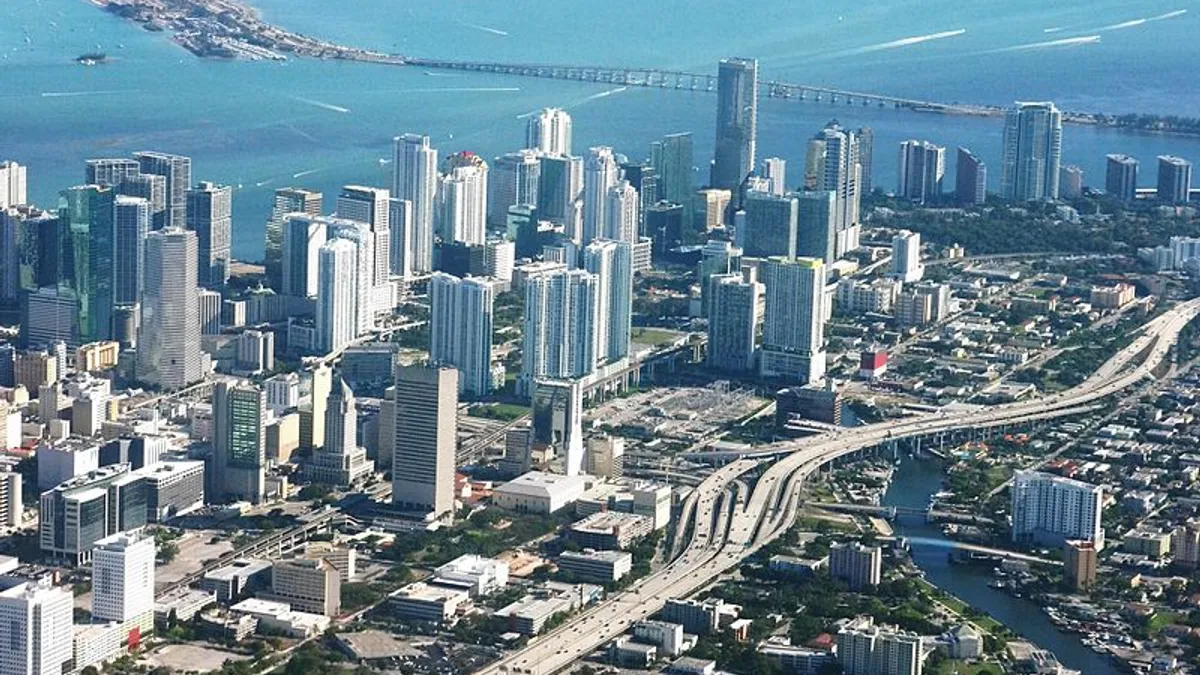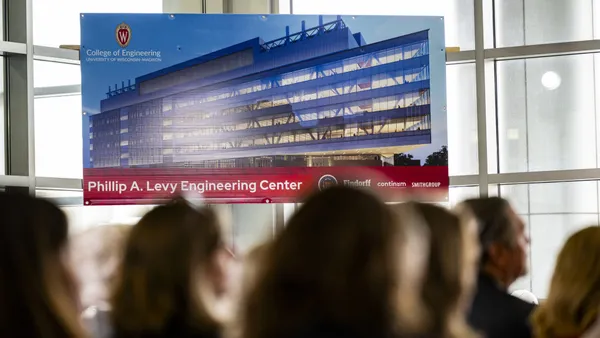Dive Brief:
- Miami Mayor Tomás Regalado said he will veto a proposed 7-acre megaproject that would see the razing of low-rise residential buildings and an American Legion hall for a new 1.2-million-square-foot mixed-use development, according to the Miami Herald.
- At the heart of the mayor's opposition to the Legions West project is developer ACRE GCDM Bay Investment's request that the City Commission greenlight a special zoning designation that would allow the project to include more residential units than the existing zoning laws allow, as well as provide a waiver of certain height restrictions
- In exchange for being able to include the park in its official acreage count, the developer has agreed to perform park upgrades, but critics say the scope of the project is not in line with the historical character of the neighborhood. As plans stand now, Legions West would include a new American Legion hall, three towers of at least 476 condominiums, a 237-unit apartment building, retail space and restaurants.
Dive Insight:
An even bigger proposed development has also drawn community ire, although Regalado hasn't offered comment on that one yet. The 22-acre, 7.2-million-square-foot Eastside Ridge development planned for the Little Haiti neighborhood of Miami has won initial approval from the city's Urban Development Review Board, although the members demanded assurances that developers would listen to neighborhood feedback and refine the project design to better fit in with the area aesthetic.
The residential component of the Legions West project also reinforces concerns of overdevelopment of condo construction in Miami over the last several years. Some developers have temporarily shelved their condo projects due to overabundance fears. For example, in August, the Related Group said it had postponed construction on its Auberge Residences & Spa Miami development because of poor presales. Related cited a lack of foreign buyers as one of the reasons for the lackluster interest.
Residents are also concerned at the possibility of more stress on local resources and infrastructure, as well as the possibility of gentrification, with the new development. Los Angeles communities are also dealing with many of these same issues, as developers seem to propose one high-density project after another. In an effort to stem the tide, local advocacy groups got the Neighborhood Integrity Initiative on the city's March ballot. If passed, the measure will put a two-year moratorium on the rezoning actions that are typically required before developers are permitted to build such huge developments.













